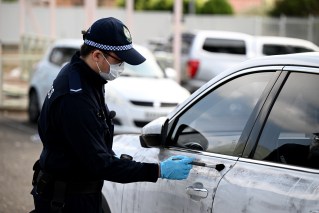Puppy scam fleeces lonely Aussies of $300,000 amid pandemic

Prospective puppy owners are advised to do their homework before agreeing to buy. Photo: Getty
If a cute puppy offered online sounds too good to be true, it probably is.
That is the message from the Australian Competition and Consumer Commission, which estimates that Australians have lost almost $300,000 to puppy scams during the coronavirus pandemic.
Compared to the previous year, Scamwatch recorded a fivefold increase in April for dishonest schemes to extort money out of consumers for dogs that did not exist.
“Loneliness was the most widely reported source of personal stress in Australia during April, and in April was when we saw this huge spike in puppy scams,” said ACCC deputy chair Delia Rickard.
“Unfortunately, the rush to get a new pet and the unusual circumstances of COVID-19 makes it harder to work out what’s real or a scam.”
Ms Rickard said cavoodles and French bulldogs were the most common breeds reported in the scams.
She urged Australians to reverse image search pictures of the puppies and to put the exact words of the advertisement into a search engine before purchasing any dog online to ensure authenticity.
Consumers can also check for membership numbers from breeder associations and look back at the seller’s previous web presence.
Ms Rickard said that while lonely Australians had long been vulnerable to rackets that preyed on their love of animals, their judgment had been further impaired by the enforced isolation of a pandemic.
Victorians were the most likely to fall for puppy scams, spending about $115,000, followed by NSW residents who lost almost $98,000.
South Australians were the least likely to succumb to the deception of online tricksters.
But it is not just Australians who are succumbing to floppy ears and doe eyes, with Britain, US, Canada and South Africa also reporting a spike in canine fraud cases.

Ms Rickard said some consumers’ judgment had been clouded amid the COVID-19 pandemic. Photo: ABC
“It’s quite an international scam that has been going for a long time,” Ms Rickard said.
“I guess there’s something that just tugs on everyone’s heartstrings when they see cute, adorable puppies.”
But it is more than just potential pet purchases that have seen Australians fleeced since the coronavirus outbreak prompted strict quarantine measures enforced two months ago.
As of April, Scamwatch had received more than 2500 reports of fraud incidents relating to COVID-19, with consumers losing nearly $750,000.
Australians have so far lost more than $53 million to all reported scams this year.
“It’s only a small percentage of the scammers that are actually reported to us, so you could multiply that many times to get the true figure,” Ms Rickard said.
Ms Rickard advised consumers to be sceptical and cynical to avoid being scammed, especially when it came to the online purchase of a furry isolation companion.
“Ask yourself: if something’s too good to be true, that might be an indication that it’s a scam,” she said.
How to suss out a puppy scam
- Do a reverse-image Google search to check if the photo has been posted elsewhere on the internet. Some scammers get around this by altering the image
- Do an online search of the seller’s email address, which may bring up warnings on other sites
- Check for membership numbers from breeder associations
- Check out the seller’s previous web presence
- Try to meet the breeder in person and meet the adult dogs







